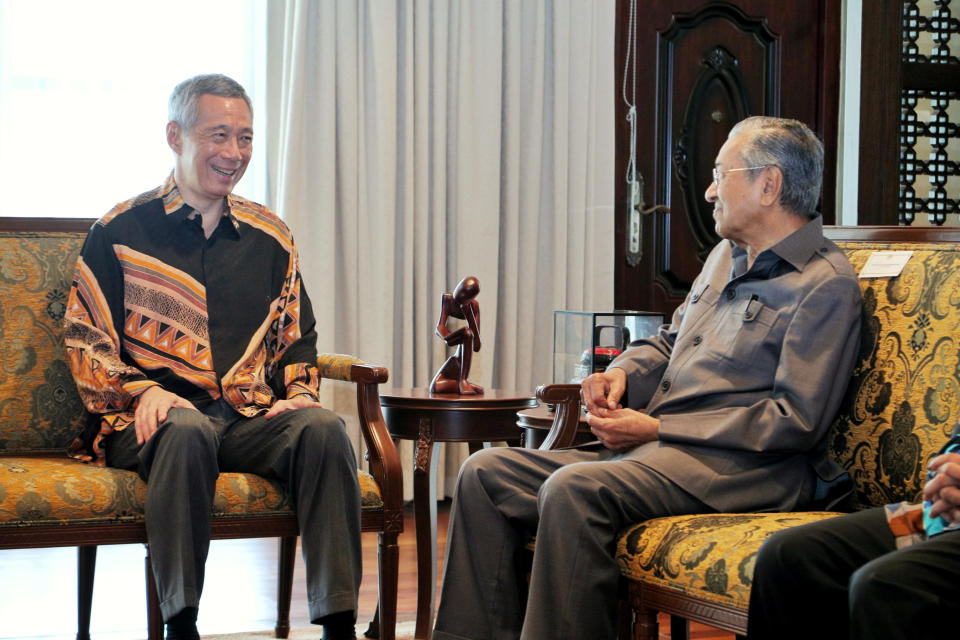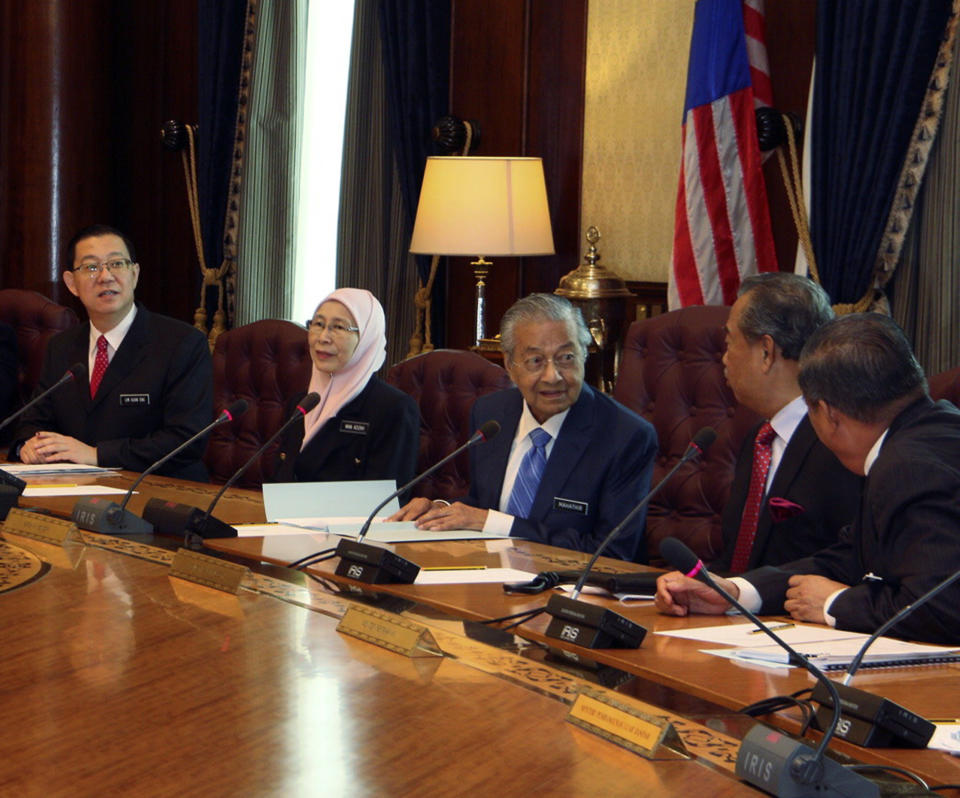COMMENT: Is Mahathir a changed man?

The Malaysia moment just refuses to leave the headlines. More than two weeks after the historic 9 May election result, hardly a day goes by without yet another dramatic twist, another climactic revelation. From ousted Prime Minister Najib Razak being pulled in to explain his role in the money scandal revolving around the state-funded 1MDB to the disclosure that the country’s debt has breached RM1 trillion (S$336 billion) – not RM685 billion as claimed by his government – to the sensational seizure of RM114 million in cash…the aftermath of the unprecedented election result has, to put it mildly, been jaw-dropping.
That all this is happening on Singapore’s doorstep is raising concerns not just economically but also politically and socially. A diplomat friend whom I met two months before the election was astute when he asked me: Which country is going to be very important to us? I said China. He shook his head. The US? Nope, he said. It is Malaysia, he said with a worried look.
Even though we separated politically decades ago, we are something akin to inseparable Siamese twins: Malaysia is our closest neighbour, we are linked by a shared history, we are one of the biggest investors there, Singaporeans have relatives living there (and vice versa) and the Causeway linking the two nations is the most crowded land link between any two countries. The election result is going to be very important for us, he concluded.
He didn’t mention any personalities. But it was clear that uppermost in his mind were names like Najib, with whom Singapore has had a wonderful relationship, and 92-year-old Mahathir Mohamad, whose 22-year reign as PM from 1981 was one of the most trying in the two countries’ history.
Can a leopard change its spots?

As Singapore continues to digest the implications of the election result and as the flurry of revelations continues to pop out of Putrajaya, it is the name of Mahathir that keeps coming up again and again. Of immediate concern is how he will deal with the RM50 billion High Speed Rail contract that Najib signed with Singapore’s Lee Hsien Loong in 2016. Mahathir has been talking publicly about mega projects like this. His latest comment – that the project might be ditched – was the clearest indication so far of its likely fate.
If that happens, it will be a pity as the proposed rail link can move people faster between both countries and create economic activities that will benefit businesses. Mahathir is a wily politician, linking the mega projects like this to the trillion ringgit budget deficit and saying that going ahead with the contract under its present terms will be a huge burden on the economy. Maybe this is all part of Mahathir’s negotiating stance. By raising the possibility of scrapping the project, he might be hoping that he can get Singapore to consider a renegotiation of the deal.
Mahathir has to walk this tightrope very carefully as cancelling a binding international agreement and in the process paying “huge sums of money” to Singapore as compensation will not be seen favourably by governments and businesses outside his country. This is different from the time he cocked a snook at the world when he refused to seek help from the International Monetary Fund and imposed capital controls during the monetary crisis of 1997. Although the experts predicted chaos, Malaysia came out of that crisis relatively unscathed.
At 92, despite his impressive stamina, it is doubtful that the man has the energy and lasting power to see through another crisis, though the present one may not be as serious as the one he saw in 1997. He has about two years to clear up the mess created by Najib and his hands are tied somewhat this time round because he is leader of a minority party in the ruling coalition.
There is also the question of legacy: Mahathir would want to be remembered not for his strong-arm rule during his previous premiership but as a leader who put Malaysia on a firmer footing. He has been given one last throw of the dice and he won’t want to waste it by being impetuous. Add to all these factors his decision to start a Council of Elders with respected members like businessman and former Malaysia-Singapore Airlines chairman Robert Kuok, a man whose recommendations based on his deep knowledge of the inner workings of Singapore and Malaysia cannot be wished away.
How Singapore deals with a resurgent Mahathir will be its biggest international challenge and a good test for the 4G leadership. PM Lee had a symbolic 30-minute meeting with the Malaysian leader on 19 May. Beneath the warm congratulatory messages, the anxiety was evident. Lee’s uncomfortable body language as he walked in to meet Mahathir, his late father’s old adversary, was palpable.
There are signs that Mahathir is a changed man. But he may just go back to his old ways if he sees in Singapore a difficult partner in the expected talks on the rail contract. That is not something Malaysians and Singaporeans want to even think about.
P N Balji is a veteran Singaporean journalist who was formerly chief editor of Today, as well as an editor at The New Paper. He is currently a media consultant. The views expressed are his own.
Related stories:
COMMENT: Can Singapore’s elite circle turn around growing social divide?
COMMENT: A catch-up Budget from a government in danger of losing focus


